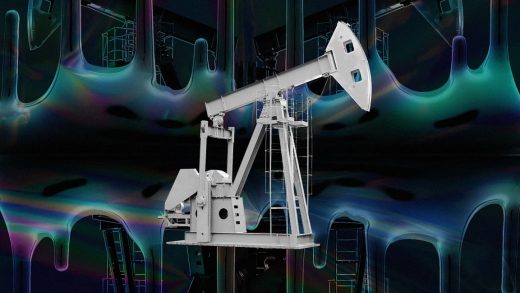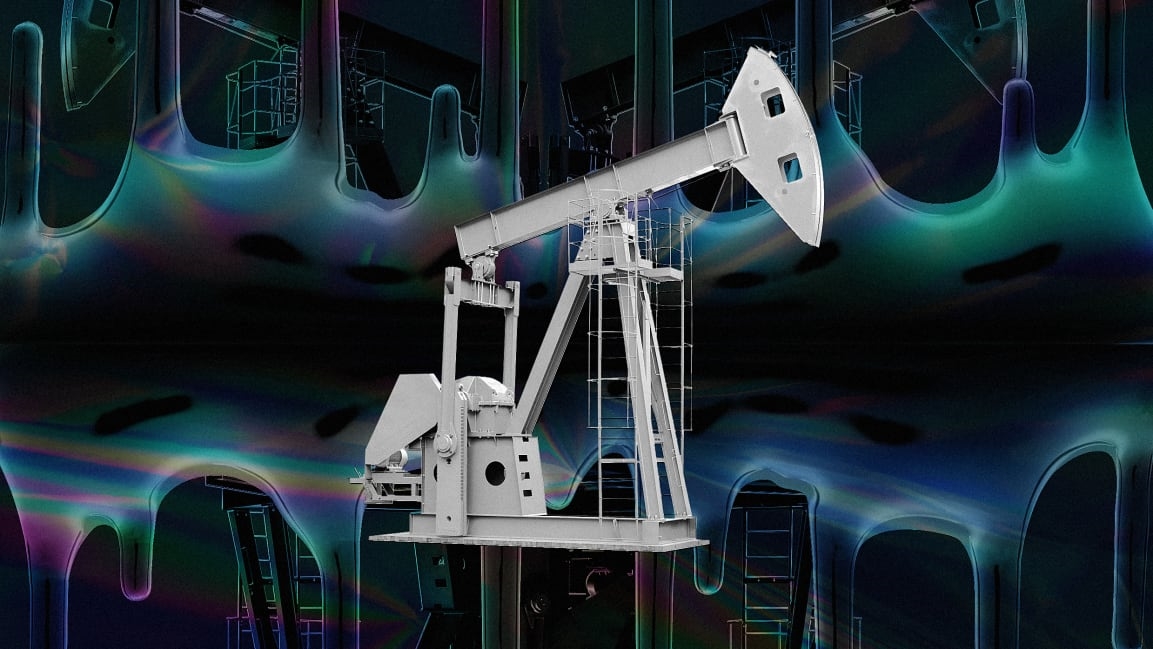Oil prices have fallen below $0 a barrel. What does it mean for the climate?
As the pandemic has shut down much of the global economy—at the same time as a price war on oil—oil prices have cratered. In the U.S., crude oil prices went negative for the first time in history on Monday. Whiting Petroleum, a large shale oil company, filed for bankruptcy earlier this month, and hundreds of other oil companies are also now at risk of bankruptcy. Natural gas prices are also falling. At a time when the world needs to transition from fossil fuels to avoid the even bigger catastrophe of climate change, what does the state of the industry mean for the climate?
Some climate activists suggest that oil is cheap enough that the government or philanthropic organizations could take over failing companies and then shut them down. That may not work very well. As this Bloomberg column points out, the cost is still significant—retiring Whiting’s debt would cost nearly $3 billion. And buying oil or gas company assets wouldn’t necessarily stop production, since those companies typically lease mineral rights from other landowners who could theoretically later sell those rights to someone else.
Still, the current situation could help speed the transition away from oil and gas. Normally, cheap oil would lead to more oil use. “If we didn’t have the COVID-induced change to our economy, it would probably be a concern as far as the near-term increase in discretionary driving and energy use that would bump up emissions,” says Michelle Manion, lead senior economist at the nonprofit World Resources Institute. But the pandemic has obviously forced travel to drop, and it’s possible some changes may last. “Folks just aren’t driving anywhere near as much,” she says. “I think what’s interesting is to think about the degree to which some of these changes might be sticky.”
Many companies may realize that remote work is a plausible long-term option and the number of people commuting each day may shrink. Work that once involved frequent plane trips may continue to rely more on videoconferences even after the risk of infection has fallen. As consumers deal with tight budgets, they may decide to wait a couple of years before buying their next car; that could coincide with a point when it’s suddenly cheaper to buy and use an electric car than one with an internal combustion engine.
The fossil fuel industry was struggling even before COVID-19, as companies took on more debt, lost value, and lost backing from some investors. Fracking companies have lost billions over the past decade. Some investors may be even more reluctant to invest in the sector now. “I think on the financial side, I would think twice as a lender until it became really clear what the trends were going to be in the transport sector,” Manion says. “Again, if there’s some stickiness to some of the new patterns and technologies that we’ve developed, along with hopefully at some point some strong policy signals from the United States and some of the other leading economies, you might see a real progression similar to what’s happened with coal, which is that it’s getting tougher and tougher to finance.”
Fossil fuel companies want a government bailout now, and Trump has suggested going farther to pay for oil that hasn’t even been extracted yet. But the U.S. government could also move in a different direction as it invests in economic recovery: Will the recovery embrace the necessary green technologies of the future? “We’re hopeful that if there’s an infrastructure package that it does take the long view,” says Manion, adding that some of the fastest-growing jobs before the pandemic were in the green sector, including energy efficiency jobs.
“If you want to accelerate recovery and neutralize to some extent some of the negative impact of COVID on the economy, you’ve got to make investments in greening the economy, reindustrializing, changing our processes, and putting people back to work almost the way that they did in the ’30s,” says Paula DiPerna, special adviser for the nonprofit CDP. “To address climate change is an enormous economic opportunity, and to fail to do so is to miss potentially the greatest opportunity to rethink our economic direction in a generation.”
(2)



